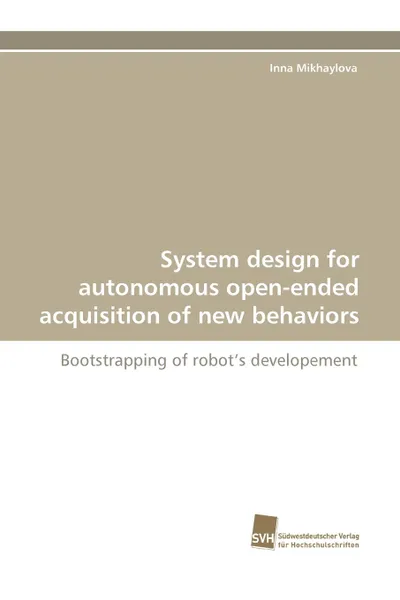System Design for Autonomous Open-Ended Acquisition of New Behaviors 12+
Автор: Inna Mikhaylova
96 страниц
Категория: Литература на иностранных языках
ISBN: 9783838115085
Язык: Английский
🔖 With increasing demand for autonomy and adaptivity of robots the focus of research on intelligent systems progressively moved from the direct solving of one specific task to more sophisticated approach of learning tasks up to the highest level where the systems decide themselves what to learn and when. Inspired by the example of child development modern research targets a similar process in artificial systems. The expected benefits are higher adaptivity, no necessity to redesign the system for changed tasks, and a break through the limits of the complexity of hand-designed behaviors. The aim of this work is the design of an initial system that bootstraps a task-unspecific, open-ended development. We formulate the constraints and requirements for the necessary design elements and make formalization of possible types of abstractions used in the behavior control. We discuss how the learning in one type supports the learning in other types thus creating a basis for an open-ended process. The general ideas about the system design are validated by means of real-world experiments, which focus on the robot's behavior during learning-related interaction with a human.
Мнения
